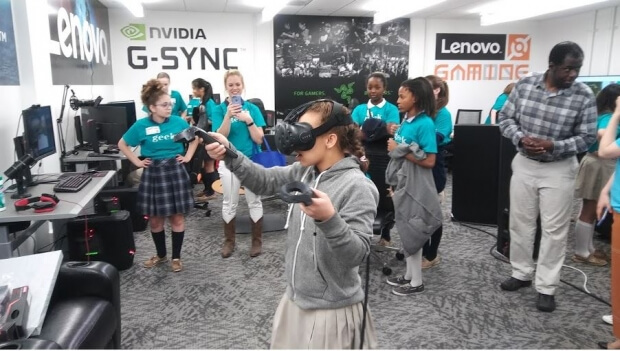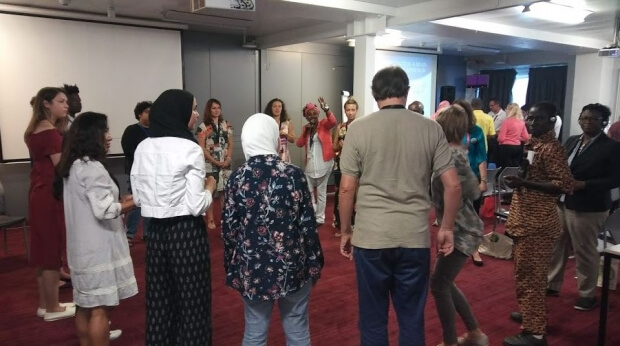All around the world there are changemakers; people making a difference. Some of them came from difficult backgrounds, but have gone on to do great things. Tsegga Seyoum Medhin is one of them. She joined us at our monthly outreach meeting, and here Francesca Baker chats to her to find out more.
Can you tell us a bit about you and how you ended up where you are today?
I am a global relations expert, and a speaker consultant on societal advancement, corporate social responsibility, and impact investing. I am the president of UN Women National Committee North Carolina Chapter and the founder of The Pearl Leadership Institute (a consulting firm for women and girls in Science Technology Engineering, Arts and Maths). I led the development of emerging global leaders for Africa’s skills gap initiative LEADing Africa (Davos’s initiative) and worked with the Obama Young Africa Leadership Initiative summit and the Mandela Fellowship.
I left Eritrea (then Ethiopia), in my formative years due to the calamities of war and migrated to the UK as an asylum seeker. I then earned my graduate and post graduate degrees in the US. I worked for IBM, and have 19 years’ experience in executive leadership in operations, marketing, and human capital.
My business success and leadership has been recognised with multiple honours and awards including the US presidential volunteer gold award of President Obama and President Bush.
Oh, and I am the mother of two successful daughters, and live in Raleigh with my spouse.
You are on the Board of Directors for the North Carolina Chapter of UN US NC Women – what does this role involve?
My role as the president for the UNUS NC is about bringing awareness, advocacy, and fundraising to impact the work of the organisation across the globe. I want women and men to become part of the conversation on women’s issues, invest in the empowerment of women, girls, and our boys, and be involved in the solutions of equity and social justice for peace, people and planet.
Can you explain about The Pearl Leadership, and explain why getting more girls into science, technology, engineering, arts and math is so key?
In 2010 I founded the Pearl Leadership Institute (TPLI) to add value to societal advancement leveraging women and girls with STEAM career objectives (Science, Technology, Engineering, Arts and Math). We value science, because that is where the living wages are – critical for women’s economic empowerment, and the arts, because creativity enables us to problem solve effectively and use innovative thinking to drive economies forward.
The Pearl Leadership Institute hosts and sponsors three free summer camps for sixty marginalised girls, as well as four women leadership workshops on personal and professional growth, financial and health wellness. We partner with the Duke University, Wake County Public Schools, North Carolina State, Meredith, and as well as the private sector – IBM, Delta Dental and Wells Fargo Bank to name a few.


Which of the United Nations’ 17 Sustainable Development Goals stand out to you as the most crucial in your work? Why these?
I believe the Sustainable Development Goals are our declaration of interdependence and act as a human GPS – a road-map to help us explore new ways to promote prosperity and take on challenges in our communities.
SDG 4, (quality education) SDG5 (gender equality) and SDG17 (partnerships) are the ones that I am aligned with most because they support the idea of empowering women for prosperity and peace, and through a strong private public partnership. By empowering women we can bring about a sustainable socio-economic transformation that begins with self value.
Why is female equality and empowerment so important to the world?
I believe women have always been seed sowers. Leveraging their voices to make sure they sit at the table to influence change and inspire leadership in action for self, family and community, is essential for the UN Sustainable Development Goals core values – prosperity, peace for people and planet through private public partnership.
Globally, women have made some tactical progress – that must continue for the next 12 years, until 2030. However, a long term strategy is needed through mentoring, coaching, promoting, and educating, to permanently break gender equity barriers. We must also educate parents on to how to raise our boys so they can become champions for change.
What are your dreams for the future?
The famous Martin Luther King ‘I have a dream’ speech stated that he had a vision for this world to be free of bias. I too, have a dream of an equal, more lasting, peaceful world with access to all human rights. We are limitless in our ability to respond, and I have a responsibility to unlock my potential and that of others.
My transformative experience at Caux this summer as a speaker, trainer, and facilitator will continue to be a key driver to consistently support women and girls. After all, they are our mothers and daughters, sisters and aunts, cousins and friends. I believe the outcome of this inspired action will add sustainable value to the development of changemakers and global shapers, and feel privileged to do it.